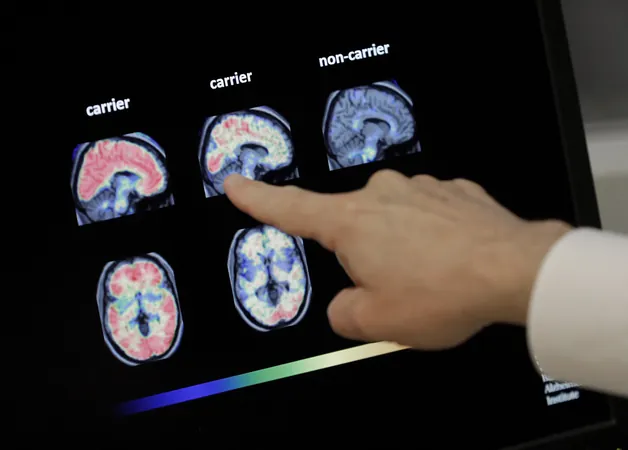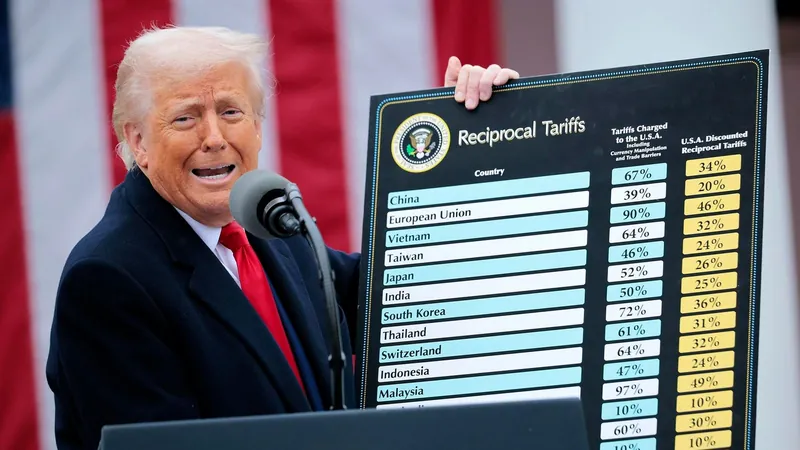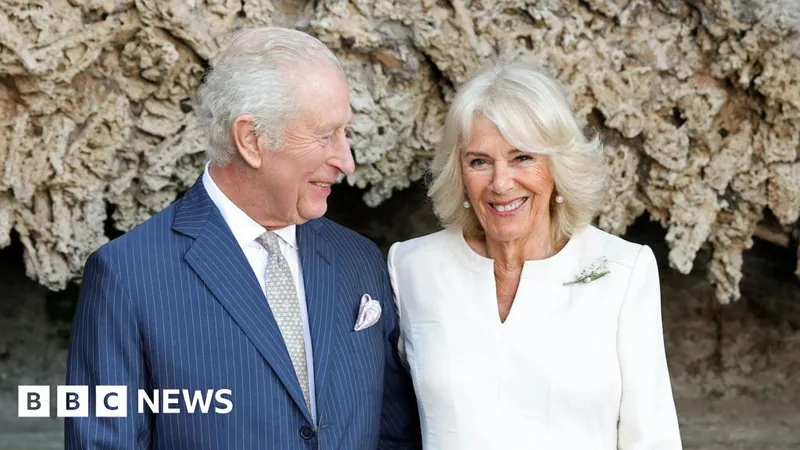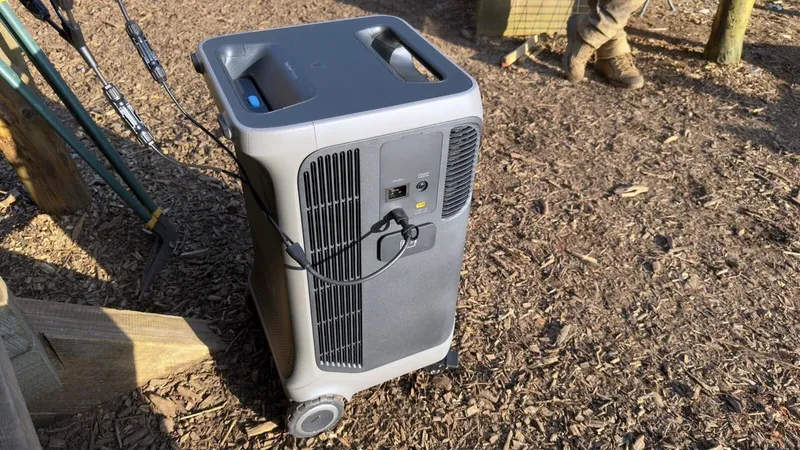
Shingles Vaccine Could Hold the Key to Fighting Dementia - Find Out How!
2025-04-06
Author: Noah
In a surprising revelation, recent research suggests that a vaccine initially created to prevent shingles may also serve as a shield against dementia. A new study indicates that individuals vaccinated against shingles experience a significant 20% reduction in the risk of developing dementia in the following seven years.
Published on Wednesday in *Nature*, this study adds to our understanding of how various health factors influence cognitive health as we age and highlights methods we can adopt to protect our brains. Dr. Pascal Geldsetzer, the lead researcher from Stanford University, reported robust findings from the research. Remarkably, the study demonstrates that women, who are statistically at greater risk for dementia, seem to derive even more benefits from these vaccinations.
The research focused on older adults in Wales who were vaccinated with the first-generation shingles vaccine around a decade ago. Now, healthcare experts are recommending a new and more effective shingles vaccine for Americans aged 50 and older. Dr. Maria Nagel from the University of Colorado Anschutz Medical Campus emphasizes that these findings provide a compelling reason for older adults to consider vaccination, pointing out that the varicella-zoster virus—responsible for shingles—has been linked to dementia.
With the rising prevalence of Alzheimer’s disease and other forms of dementia in an aging population, the potential implications of this study are staggering. Dr. Anupam Jena, a Harvard expert in health economics, noted that the possibility of a vaccine contributing to dementia prevention could alter public health approaches to aging.
What Is Shingles?
Shingles is a painful condition impacting nearly one in three people who have had chickenpox. After contracting chickenpox, the varicella-zoster virus stays dormant in the body, and it can resurface when the immune system weakens due to age or illness. Symptoms include painful, blister-like sores that can last weeks, primarily occurring on one side of the body. Severity varies; while many recover, complications can lead to long-term nerve pain or even vision loss if the eye is affected.
The Connection Between Shingles and Dementia
Although the precise causes of dementia remain largely unknown, a growing body of evidence suggests that certain viruses, particularly those from the herpes family—including the chickenpox virus—may contribute to cognitive decline. A study conducted last summer by doctors at Boston's Brigham and Women's Hospital revealed that experiencing shingles could elevate one's risk of dementia by approximately 20%. This increased risk may stem from the virus inducing inflammation in the brain and possibly leading to blood flow issues, heightening the likelihood of both strokes and dementia.
Of particular interest, recent findings from Nagel’s lab show that shingles might stimulate the production of amyloid proteins, a key characteristic often found in the brains of Alzheimer's sufferers.
Do Shingles Vaccines Offer Protection Against Dementia?
This recent study capitalizes on a unique opportunity presented in Wales, where individuals aged 80 and older were ineligible for vaccination while those just a year younger were included. By comparing these groups, researchers simulated a randomized trial, analyzing over 280,000 medical records to assess the impact of vaccination on dementia rates. They confirmed that shingles vaccination indeed appeared to confer protective benefits, though this data was derived from individuals who received the older Zostavax vaccine.
Dr. Nagel hopes further research will clarify whether the newer Shingrix vaccine offers similar benefits. Early indications suggest it might, and GSK, the pharmaceutical company behind the vaccine, recently commenced a collaboration with health officials in the UK to monitor seniors' cognitive health throughout their vaccination period.
Current Recommendations for Shingles Vaccines
The Shingrix vaccine consists of two doses administered a few months apart. The CDC advises that it be given to adults starting at age 50, as well as to younger adults with certain health conditions that may weaken their immune system. Alarmingly, less than 40% of eligible Americans have received their shingles vaccination.
Common side effects include injection-site pain and flu-like symptoms. The CDC also advises against receiving the vaccine if you are currently ill with another virus, such as influenza or COVID-19, until fully recovered.
While there is no foolproof way to prevent dementia, it is widely encouraged to maintain social and cognitive engagement and control health factors such as high blood pressure and diabetes, both of which are correlated with cognitive decline.
As research continues, the prospect of using an existing vaccine to ward off dementia opens up exciting possibilities in public health, urging us all to rethink how we approach vaccinations not just for immediate health issues but for long-term cognitive well-being!









 Brasil (PT)
Brasil (PT)
 Canada (EN)
Canada (EN)
 Chile (ES)
Chile (ES)
 Česko (CS)
Česko (CS)
 대한민국 (KO)
대한민국 (KO)
 España (ES)
España (ES)
 France (FR)
France (FR)
 Hong Kong (EN)
Hong Kong (EN)
 Italia (IT)
Italia (IT)
 日本 (JA)
日本 (JA)
 Magyarország (HU)
Magyarország (HU)
 Norge (NO)
Norge (NO)
 Polska (PL)
Polska (PL)
 Schweiz (DE)
Schweiz (DE)
 Singapore (EN)
Singapore (EN)
 Sverige (SV)
Sverige (SV)
 Suomi (FI)
Suomi (FI)
 Türkiye (TR)
Türkiye (TR)
 الإمارات العربية المتحدة (AR)
الإمارات العربية المتحدة (AR)